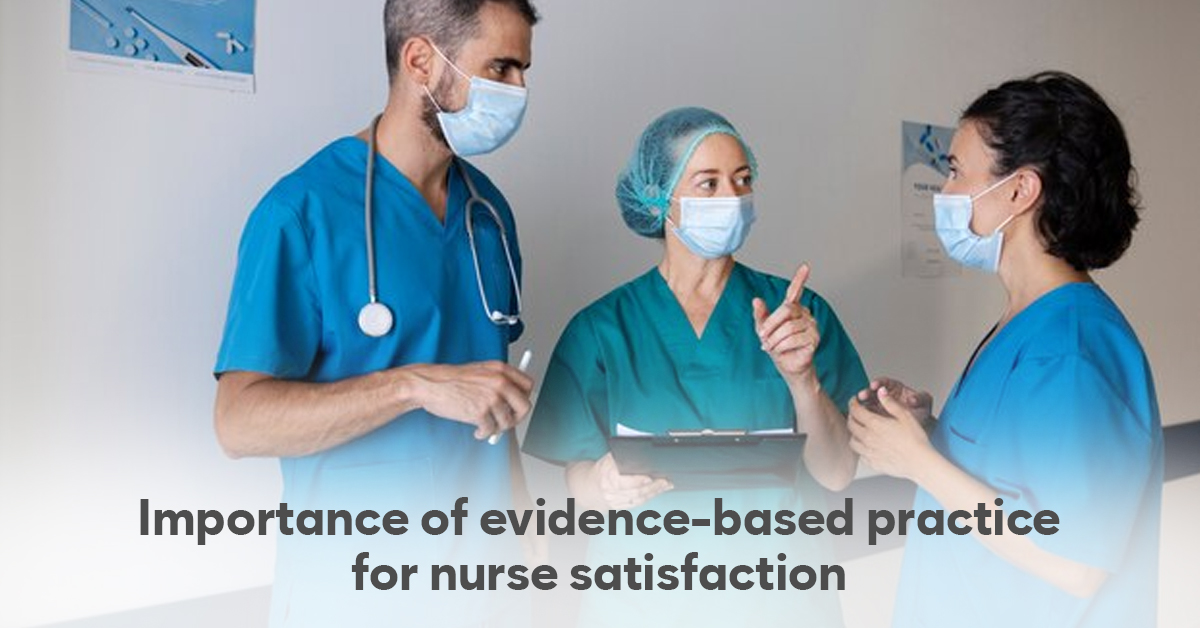In the dynamic and ever-evolving field of nursing, staying abreast of the latest research and knowledge is not only a professional responsibility but also a key driver of career satisfaction. The American Nurses’ Association (ANA) emphasizes the significance of evidence-based practice, defining it as the delivery of quality care grounded in the most recent research findings.
While this approach undeniably improves patient outcomes and streamlines workflows, it also plays a crucial role in revitalizing the passion and satisfaction of nurses in their careers.
Transforming Your Job with Evidence-Based Practice
Nursing is a profession that constantly transforms due to the influx of research findings and innovations. As nurses adapt their practice to incorporate new clinical evidence, patient care becomes safer and more individualized. Take wound care, for instance, where evidence has shown that repositioning patients can significantly reduce the risk of pressure injuries. These transformative changes not only benefit patients but can also have a rejuvenating effect on the nurses themselves.
The introduction of new technologies, procedures, or methodologies can shed light on previously overlooked aspects of a nurse’s role. For instance, encountering a novel piece of technology might spark an interest in exploring technological applications within the organization. Furthermore, leading to a broader involvement in areas like nursing informatics. The continuous evolution of evidence-based practices creates opportunities for nurses to delve deeper into their roles, fostering personal and professional growth.
Knowing When to Move On
Evidence-based practices do not just impact day-to-day tasks; they also provide valuable insights into a nurse’s career trajectory. Organizational research, often informed by evidence-based principles, offers indicators for when nurses should contemplate leaving their current positions, changing roles, or seeking opportunities to invigorate their careers. Recognizing the signs early on can be pivotal, especially when considering factors like burnout.
Burnout is a pervasive issue in healthcare, and nurses are not immune. Instruments like the Maslach Burnout Inventory provide quantifiable metrics for healthcare professionals’ emotional well-being and job fatigue. By understanding these metrics, nurses can identify signs of burnout and evaluate their readiness for a career change. Evidence-based practices extend beyond clinical settings, guiding decisions that impact career trajectories.
Other Ways of Measuring Satisfaction
In addition to assessing mental health conditions, various tools are available to measure job satisfaction. Surveys such as the American Nurses’ Association Workplace Survey delve into aspects like workplace well-being, compensation, work-life balance, job satisfaction, work environment, and career advancement. These surveys offer valuable insights into nurses’ perceptions of their roles and help in evaluating their overall work situation.
To ensure that evidence guides both practice and career decisions, nurses can take a proactive approach:
Join Professional Organizations: Participation in specialty professional organizations and attendance at events reporting the latest practices can keep nurses informed and connected to evolving industry standards.
Stay Informed: Subscribe to specialty journals to receive updates on evidence-based changes in practice and relevant research articles. This commitment to ongoing education ensures that nurses remain at the forefront of their field.
Recognize Burnout: Be vigilant about signs of burnout, both in oneself and colleagues. Awareness of emotional exhaustion and frustration can prompt a timely evaluation of one’s future in a current position.
Observe Job Satisfaction Indicators: Assess the job satisfaction indicators in your employment situation by observing the professionals around you. A positive work environment, reflected in the happiness and engagement of colleagues, often translates to personal job satisfaction.
Conclusion
The incorporation of evidence-based practices not only transforms patient care but also contributes significantly to nurse satisfaction and career longevity. By embracing these practices and remaining vigilant about personal well-being, nurses can navigate the dynamic healthcare landscape with enthusiasm and resilience. As the evidence continues to evolve, so too can the opportunities for personal and professional growth in the nursing profession.






